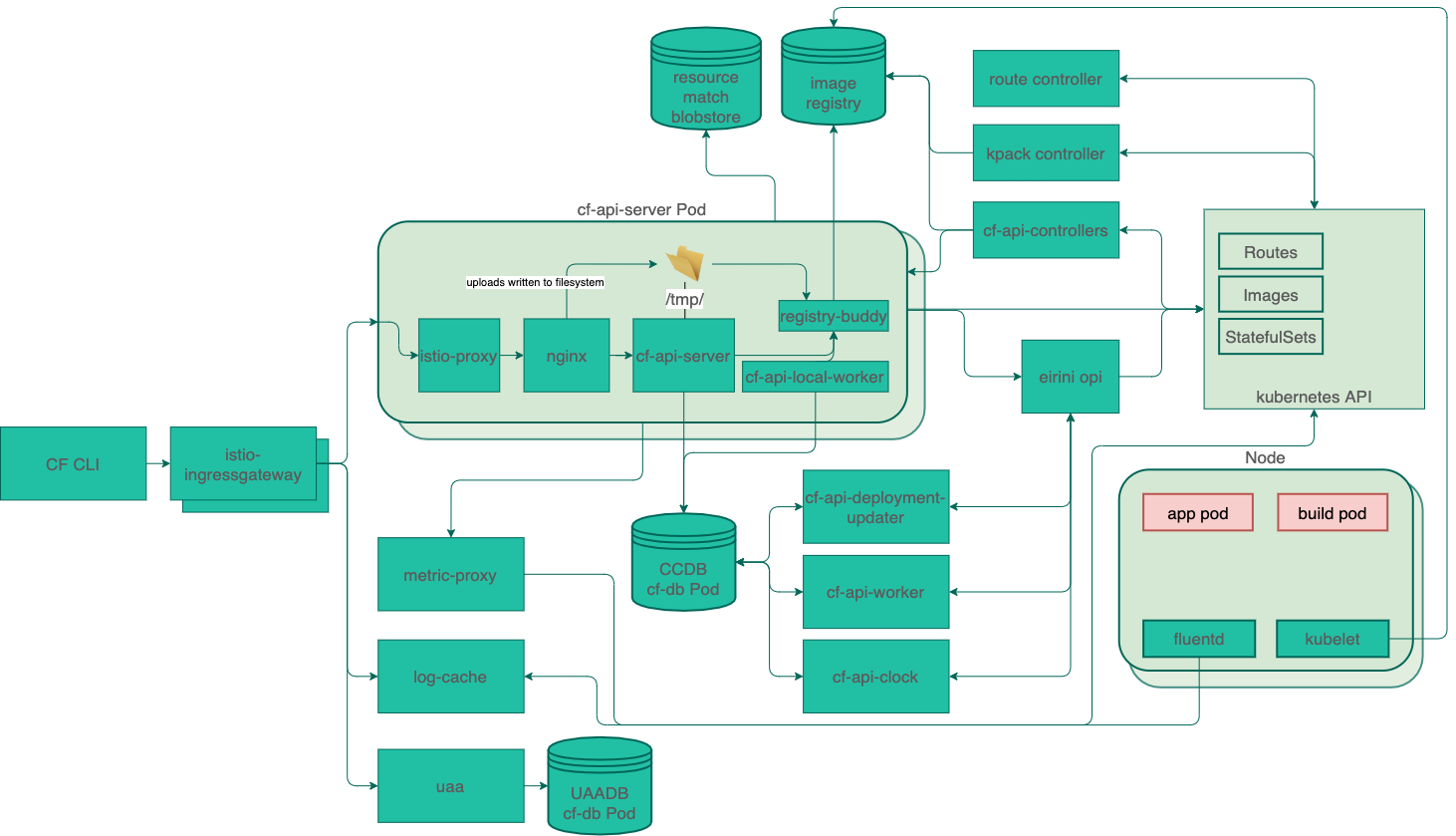capi-k8s-release
This collection of yaml, ytt, and go code packages together the bits that make the CF API run in cf-for-k8s.
Deploying
- capi-k8s-release is best consumed as part of cf-for-k8s
- Clone the
cf-for-k8srepository:git clone https://github.com/cloudfoundry/cf-for-k8s.git - Follow the cf-for-k8s deploy documentation
Components & Collaborators
 click here to edit the diagram, save as capi-k8s-release.png to persist changes
click here to edit the diagram, save as capi-k8s-release.png to persist changes
In this repo:
- cf-api-controllers is a collection of kubebuilder controllers that synchronize the CF API and various k8s CRDs (Images, Builds, Routes, PeriodicSyncs, etc).
- registry-buddy is sidecar service to help ruby code communicate with container registries using go-containerregistry.
- nginx is a custom-built nginx container including the nginx upload module for managing resumable multipart package uploads.
- backup-metadata is a velero hook that collects metadata about resources currently stored in the CF API.
From elsewhere:
- cloud_controller_ng is a reference implementation of the the V3 CF API.
- eirini is an adapter that lets Cloudfoundry Processes and Tasks run on Kubernetes
- kpack is a collection of CRDs and Controllers for building container images from source using Cloud Native Buildpacks
- route controller & istio are used by cf-for-k8s to manage Routes to apps and the service mesh between CF components
- uaa is used to manage users and token verification
- cf is the eponymous CLI for interacting with the CF API. We support versions v7 and higher.
Rolling out development changes to capi-k8s-release
./scripts/rollout.shwill take any local changes tocapi-k8s-release, apply them to a localcf-for-k8sdirectory, and then deploycf-for-k8s./scripts/build-and-rollout.shwill take local changes tocloud_controller_ngand the components incapi-k8s-release/src, build them with kbld, pack, and paketo's ruby and go buildpacks, and then deploy the new images to cf-for-k8s.
Environment variables can be used with either script to override default local source directories and remote image repositories.
Configuring pushes of buildpack apps
capi-k8s-release currently uploads app source code to a blobstore, but then hands that off to kpack to build app images that are then placed in a registry. In order for this to work, you must configure the following values:
kpack:
registry:
hostname: # the hostname of the registry, used for authentication
repository: # the destination of the build app images within the registry
username: # basic auth registry username
password: # basic auth registry passworddockerhub example:
kpack:
registry:
hostname: https://index.docker.io/v1/
repository: cloudfoundry/capi
username: <username>
password: <password>gcr example:
kpack:
registry:
hostname: gcr.io
repository: gcr.io/cloudfoundry/capi
username: <username>
password: <password>